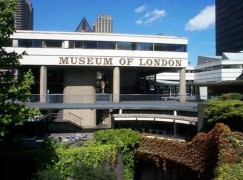A hall for London? Ask the actuaries
mainIt’s only a matter of weeks since I heard Sir Nicholas Kenyon, head of the Barbican Centre, and Kathryn McDowell, ceo of the LSO, tell a crowded room that, come what may, they were pressing ahead with a new concert hall for their new music director, Sir Simon Rattle.
Well, come what may just came. Mrs May, the prime minister, killed off the plan for a new hall with a late-Friday afternoon press statement, designed for minimum public attention. And she was right to do so.
Because, as we have argued before, this was the wrong hall, in the wrong place, at the wrong time and with entirely the wrong motives. Yes, London needs a good concert hall, but not as a vanity object for a celebrity maestro not as something that would be pushed through without public consultation or assessment of civic need.
The half-billion pound hall would have aroused fury from most of the rest of the country, from underprivileged citizens whose benefits have been cut to the bone and from all whose respect the democratic process. This was a stitch-up between a Tory councillor, a Tory Mayor, a conductor’s agent and a few other in the music business. It was not a rational decision in any shape or form.
And to build it on the Devil’s Island site of the Museum of London, a concrete hell in a no-go area, was similarly ill-judged, an act of convenience on a site the City wanted off its hands.

That said, London still needs a decent concert space. The Royal Festival Hall sounds (and smells) worse each time I go there, likewise the Royal Albert Hall. Both are beyond further acoustic repair. The Barbican, poor as it is, has been further damaged in the public perception by recent disparagements from Rattle, Kenyon, McDowell and Co.
But where should that hall be?
Before any further consideration is given to the matter, what is needed is an authoritative assessment of population trends over the next twenty years. In which part of London will the young professionals be living in 2040? Where is the next hot area after the one after Hoxton? Government consults actuaries on all such decisions. Let’s have a fine-tuned, professional,mathematical assessment. Then we can start thinking about a hall.





Comments